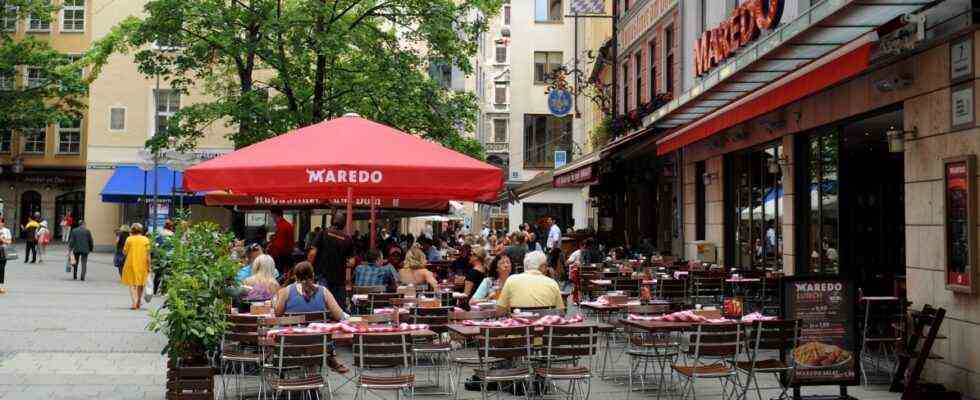Georg Voss has been with Maredo for a long time. As a guest, he always enjoyed eating the rib-eye steak with the Argentine pesto Chimichurri, he says. Professionally, as the person in charge of a Lufthansa catering company, he cooperated with the steak house chain and later headed a Maredo joint venture for three years. “I’ve always valued Maredo, but sometimes thought to myself: A little more zeitgeist would be good for the brand,” says Voss. Now he wants to take care of it himself: Together with co-sponsors, he has secured the trademark rights to Maredo and initially reopened three branches of the recently insolvent company. More are to follow.
Since the beginning of July, the restaurants on Gendarmenmarkt in Berlin, Dortmund and Mülheim an der Ruhr have been serving steaks from Uruguay and Argentina again. Although it was the Corona crisis that caused Maredo to go bankrupt in the first lockdown and the fatal blow in the second, the problems had already started earlier. After the three founders sold the company in the 2000s, it passed through the hands of several investors. “They reinvested comparatively little, so that the design in many restaurants was no longer up to date,” says Voss. Old-fashioned cowboy look, unprofitable branches – and then Corona.
Georg Voss wants to bring the brand with the horned M in the logo back to German promenade. But that’s not that easy, as the branches were all closed at the beginning of the year and the employees were laid off. Some of the new employees, says Voss, are former employees. “We first had to convince the former landlords that our concept could work.” This has apparently been successful at ten to twelve locations, including Stuttgart, Frankfurt, Münster and Leipzig: Voss plans to reopen there in the next six months and give the not yet renovated branches a new design within two years. In other cities, he says, competitors have got hold of the premises.
The motto is: Avoid big surprises
Maredo is not the only restaurant chain that went bankrupt during the pandemic and is now daring to restart. Vapiano, known for Italian dishes and notorious for queues in front of the pasta counter and for food that is not always hygienic, filed for bankruptcy in March 2020. Now Vapiano is also attempting a renaissance with new investors – in a radical way, as it became known in June. The chain is banning pizza from its menu in the coming months and replacing it with pinsa. It is also a topped dough cake that is establishing itself as an oval, hip alternative to pizza, especially in large cities.
At Maredo, on the other hand, investor Georg Voss initially wants to avoid the really big surprises. A look at the menu of the reopened branches reveals everything from corn on the cob and rib-eye steak to the salad bar that the chain was already standing for before bankruptcy. “Maredo was and will be a steak house,” says Voss. New on the menu are additional burgers, with which he primarily wants to appeal to the younger audience, and so-called bocadillos – toasted bread with a topping that does not necessarily contain meat. In 2021, a steak house will also serve grilled vegetables, goat cheese thalers and mushroom patties. “If ten friends want to go out to dinner today, two vegetarians are quickly involved and they should also feel at home with us,” says Voss.
In addition, guests will in future be able to sear their meat directly at the table and attend barbecue seminars in the branches. Moritz Dietl thinks that it is a good idea to offer guests an experience “that goes beyond a plate of meat with a side dish”. He is the managing partner of the Treugast Solutions Group, which specializes in advising hotels and restaurants. “Today, a visit to a restaurant should no longer just serve to eat, but should also be suitable for use in the infrastructure,” says Dietl. If the guest posts his meal – just like Franck Ribéry once did his golden steak from Dubai – in the best of cases he is doing unpaid advertising for the restaurant.
Will the idea work? The investor himself describes his project as “brave”, and consultant Dietl even as “risky”. But if you secure attractive locations as a restaurateur, deliver a contemporary concept and offer quality, you can be successful even in a crisis. Possibly with a mix of rib eye and goat cheese.

